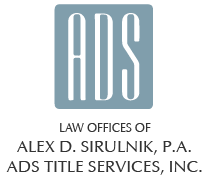
Commercial lease agreements are long, complex and notoriously complicated – and every provision completely essential. In fact, there are several key elements of a property lease agreement in Florida, and they each play an important part in ensuring that you enter into a fair and satisfactory lease agreement.
One component of a lease agreement you should not overlook during negotiations is the tenant improvement allowance. If you do not see one in a lease agreement you’re considering, it’s time to speak up.
What is a Tenant Improvement Allowance?
A tenant improvement allowance is money given by the landlord to a commercial tenant to help offset the costs of a renovation or improvements to the leased property.
Improvement allowances are generally fixed-figure amounts that do not need to be repaid and are calculated based on a property’s square footage. For example, a tenant improvement allowance of $50 per rentable square foot on a 10,000-square-foot property would amount to a sum of $500,000. A tenant improvement allowance is a key area for negotiation and can be advantageous to both the landlord and the tenant.
Are There Restrictions With Tenant Improvement Allowances?
While tenant improvement allowances involve a cash exchange, the money can’t just be spent on anything under the sun. It has to go toward improvements that will enhance the value of the property. This may include hard costs or soft costs so long as they benefit the property and landlord. Hard costs could include things like new windows and doors or updated flooring. Soft costs might be those associated with construction, like a design or management fee. Because soft costs leave a bit more open to interpretation, you’ll want to ensure that whatever soft cost allowances you permit are defined in your commercial lease agreement.
As a tenant, it’s important to remember that a tenant improvement allowance will very likely not cover the full amount of your renovation plans, especially considering it doesn’t cover things like furniture or business equipment, but it can still be very beneficial and is an important negotiation piece to consider as you evaluate your entire lease agreement.
Whether you’re a tenant or landlord, consult with a Florida real estate attorney before finalizing a commercial lease agreement and determining a tenant improvement allowance. For questions about commercial real estate throughout Miami, get in touch with our team at the Law Offices of Alex D. Sirulnik, P.A.



